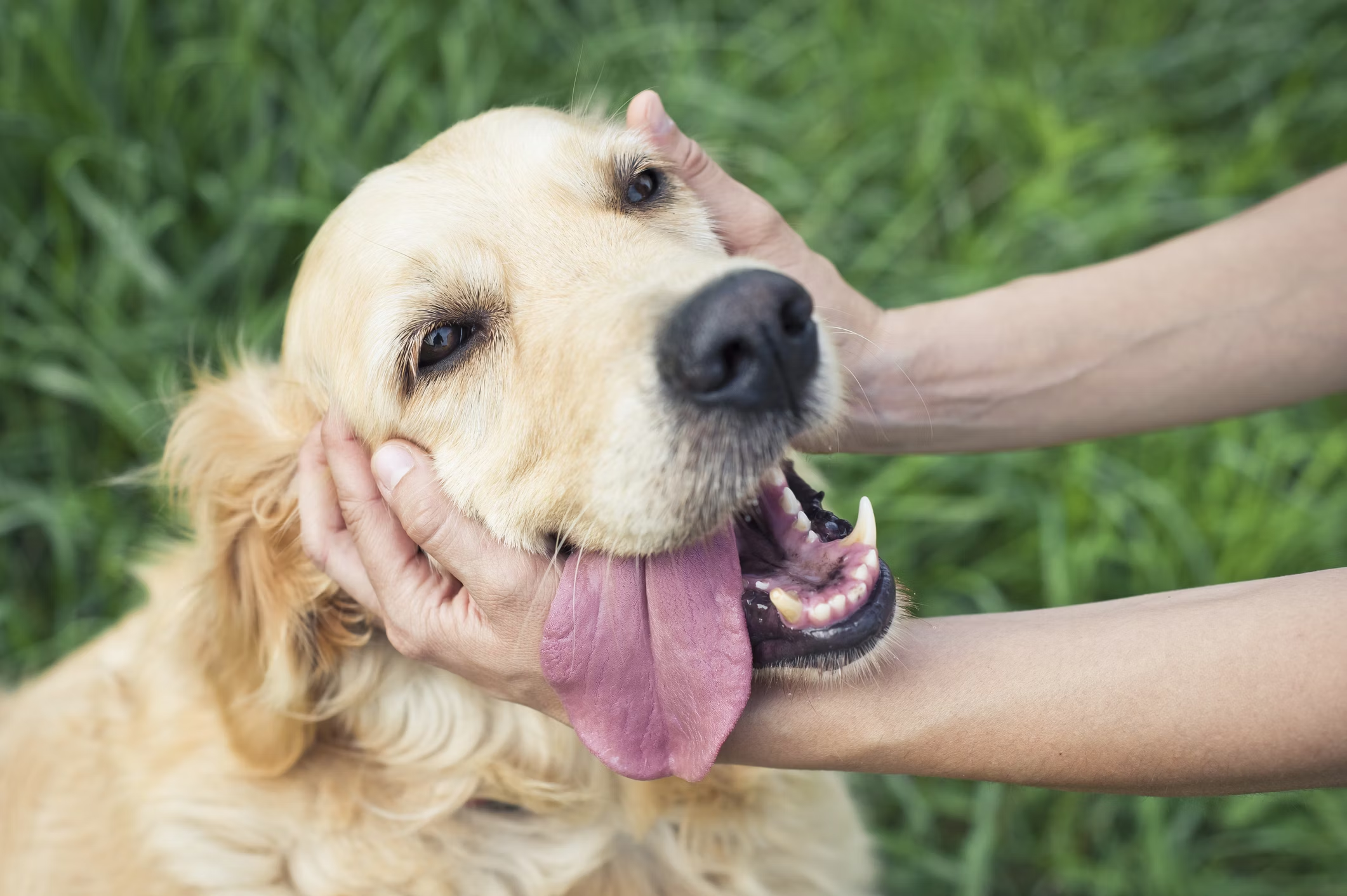It’s not unusual to see a dog shake now and then. Sometimes the reason is obvious, like shaking off water after a bath. But other times it’s harder to know the underlying cause behind a shiver or tremble, especially if the behaviour is subtle. Understanding the possible reasons why dogs shake can help you determine when it’s a harmless response and when you need to take action to help your pup.
Common reasons dogs shake
Shaking in dogs isn’t always cause for concern. In fact, some dogs shake regularly in response to common stimuli or everyday conditions.
Environmental factors Chilly conditions are one of the most straightforward causes of shaking. Like people, dogs shiver when they’re cold, especially short-haired or small breeds that lose heat more easily. If your dog trembles during winter walks or after swimming, they may simply need to warm up.
Excitement or fear Some dogs shake when they’re overstimulated—either from joy or nervousness. If your pup loves to go for a walk and starts trembling at the sight of their leash, it’s likely a happy sign of anticipation. On the other hand, if your dog shakes in response to loud noises or unfamiliar environments, it could be a sign of fear or anxiety.
Sleep-related shaking Dogs often twitch, tremble, or paddle their legs during REM sleep. These involuntary movements are normal and usually mean your pup is dreaming. Unless they’re waking up confused or disoriented, there’s usually no reason for concern.
Physical pain Dogs may shake when they’re experiencing pain or discomfort, even if the issue isn’t immediately visible. Limping, yelping, or behavioural changes in addition to shaking may indicate injury or illness.
Underlying health issues There are several health conditions that can cause a dog to shake (more on that below). The treatment a dog needs will depend on the root cause.
Health-related reasons dogs shake
In some cases, shaking is due to a medical issue that requires veterinary attention. Let’s look at a few examples.
Neurological disorders
Certain neurological conditions can cause involuntary tremors. These may affect specific parts of the body or cause full-body shaking. Disorders like cerebellar hypoplasia, epilepsy, or idiopathic tremor syndrome can all lead to dog tremors.
Hypoglycemia (low blood sugar)
Toy breeds, puppies, and diabetic dogs are especially prone to hypoglycemia. When blood sugar drops too low, it can cause shaking, weakness, disorientation, or even seizures. Immediate care is essential if you suspect this is the cause.
Poisoning or toxicity
Ingesting toxic substances—such as chocolate, xylitol, certain plants, or human medications—can trigger shaking, along with vomiting, drooling, or seizures. If your dog begins shaking suddenly and you suspect poisoning, seek emergency veterinary help right away.
Nausea or stomach upset
Shaking can also accompany nausea or stomach discomfort. Dogs may also drool or lick their lips in an attempt to self-soothe. Motion sickness during car rides can produce similar symptoms.

Stress-related shaking
Dogs, like people, can experience physical reactions to stressful situations. In order to best help your pup, it’s important to recognize the signs of anxiety. If your dog trembles during thunderstorms, visits to the veterinarian, or when left alone, anxiety may be the cause. Other signs of stress or anxiety include pacing, panting, whining, hiding, or destructive behaviour.
Anxious dogs may have heightened adrenaline responses. It’s this adrenaline surge that causes physical signs like trembling or muscle tension. Over time, stress can impact a dog’s health and quality of life, so it’s important to reduce or eliminate triggers, or help your dog with behaviour modification to manage anxiety.
Tips to calm an anxious dog
- Create a calm, predictable environment
- Use positive reinforcement to build confidence
- Provide toys or puzzle feeders for mental stimulation
- Consider pheromone diffusers or thunder shirts
- Talk to your veterinarian about behavioural support or medication
Did you know genetics play a role in some behaviours? Wisdom Panel’s Premium dog DNA tests can screen for genetic predispositions to general anxiety and separation anxiety, giving you deeper insight into your dog’s behaviour and needs.
When to seek veterinary care
Shaking can be harmless, but some instances require medical attention. Knowing the difference between the two is critical. The following are signs that your dog may be experiencing an urgent health issue.
- Shaking that is severe or persistent
- Accompanying signs like vomiting, diarrhea, lethargy, or disorientation
- Sudden onset of shaking with no obvious trigger
- Shaking that begins after your dog eats something unusual
- Signs of distress, pain, or collapse
If your dog displays any of these signs—or if you’re unsure what is causing your dog’s shaking—it’s best to consult your veterinarian for a proper diagnosis.

How to help when your dog shakes
The cause of your dog’s shaking will dictate the support you give them. Here are a few ways you can help your pup.
Keep them warm
If you suspect your dog’s shaking is due to the cold, provide a cozy blanket, sweater, or heated bed—especially for breeds that are more susceptible to the cool weather.
Offer comfort and reassurance
If your dog is nervous or overwhelmed, stay calm and reassuring. Avoid punishing or scolding them, which can increase anxiety.
Try calming tools
Products like calming treats, pheromone sprays, or anxiety wraps may help reduce stress-related shaking.
Maintain a routine
Consistent schedules for feeding, walks, and playtime help build security and confidence—particularly for anxious dogs.
Seek professional guidance
For chronic anxiety or suspected medical conditions, a veterinarian can help develop a treatment plan tailored to your dog’s needs.
Common misconceptions about dog shaking
It’s easy to assume all shaking is the same—but not all tremors are created equal.
Shivering vs. trembling
While both involve muscle movements, shivering typically relates to cold or excitement, while trembling can point to fear, pain, or illness. Understanding the context in which shaking occurs is key to interpreting what your dog is experiencing.
Don’t assume “it’s just nerves”
While anxiety is a common cause, it’s not always the answer. Don’t overlook medical conditions just because the shaking seems minor. Paying attention to the full picture—behaviour, environment, other physical symptoms—can help you catch problems early.
Know your dog’s whole story
Your dog’s breed background and genetics can influence how likely they are to shake due to cold, anxiety, or inherited health risks. A dog DNA test from Wisdom Panel™ gives you insights you can use to support your pup’s health and happiness.




